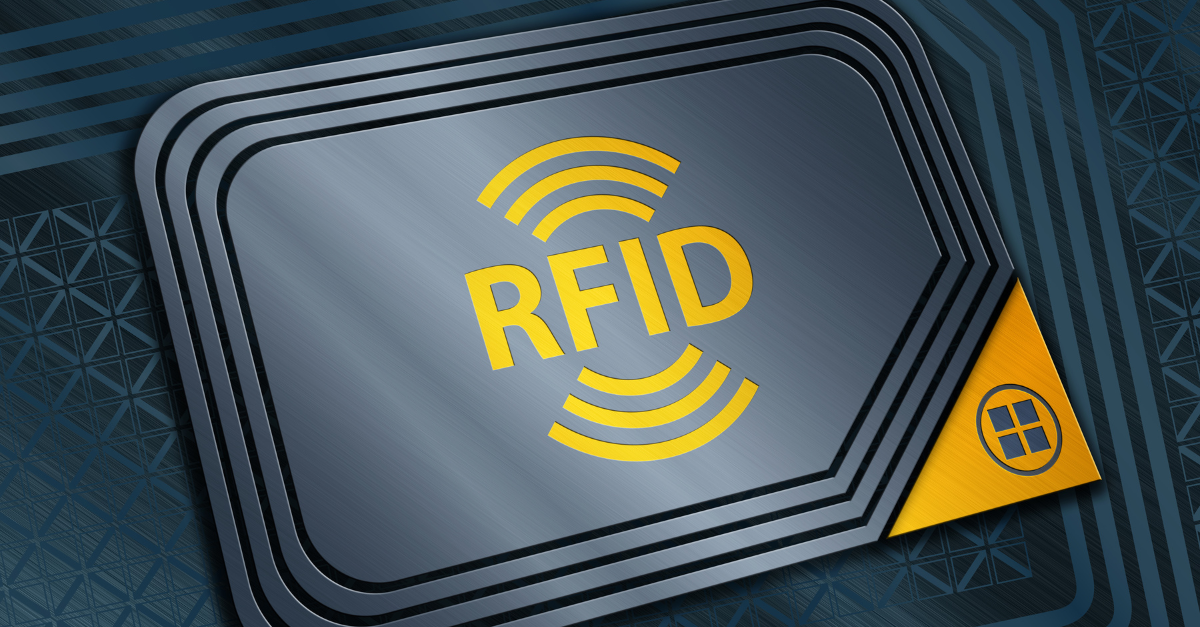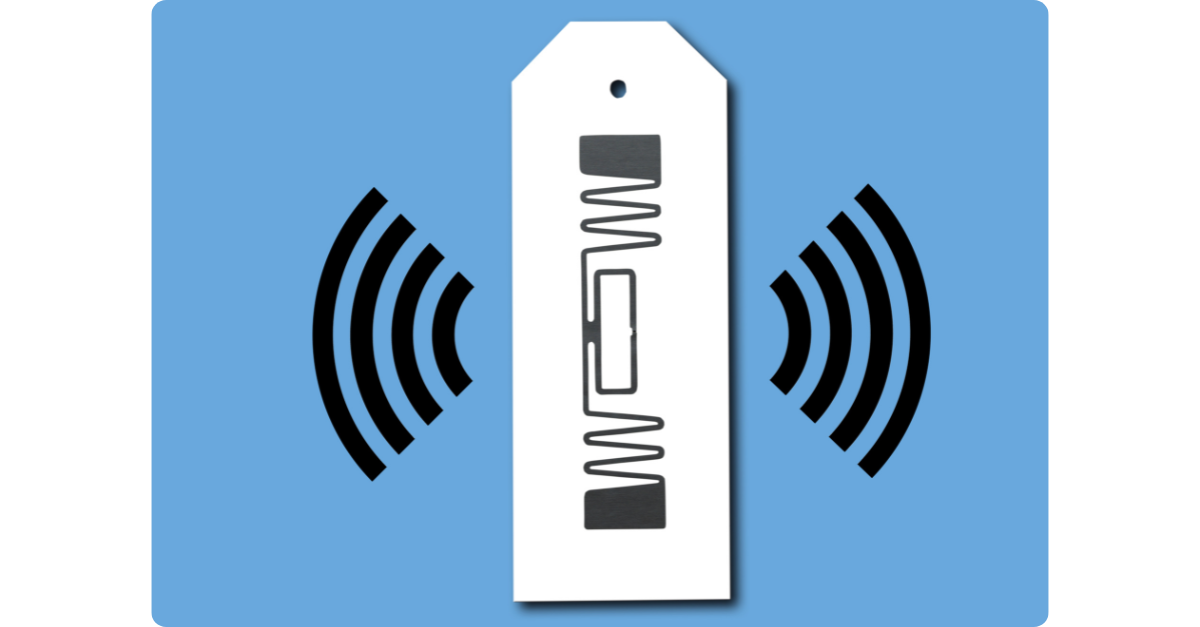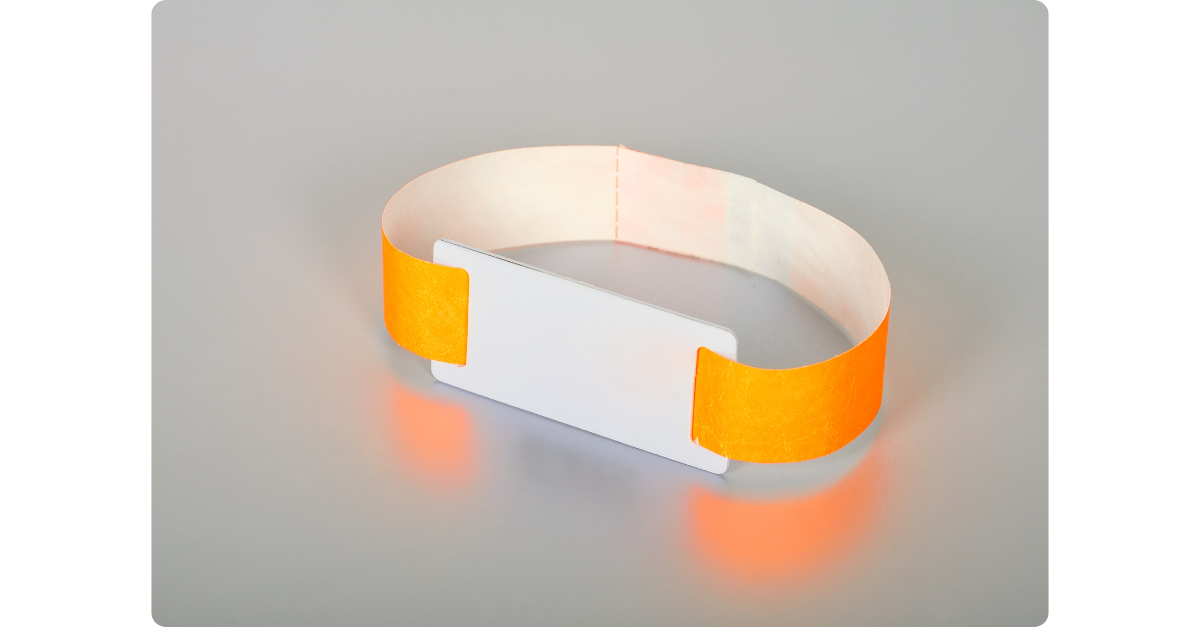RFID Event Technology: Transforming Events Seamlessly
ExpoTools Blog
December 16, 2024
Imagine attending an event where you breeze through check-ins, enjoy cashless payments, and never worry about losing your ticket. That's the magic of Radio Frequency Identification (RFID) event technology at work. From faster entries to improved crowd control, RFID technology for events is transforming the way we experience gatherings of all kinds. By using RFID and related innovations like RFID tags and readers, event organizers are creating smoother, smarter, and more enjoyable events for everyone involved.
What is RFID Technology, and How Does It Work?
At its core, RFID is a sophisticated technology that uses radio waves to identify and track objects, people, or animals wirelessly. It's a contactless system that enables data exchange between an RFID tag and a reader. This seamless interaction happens in real-time and without the need for physical contact, making it ideal for scenarios where speed, accuracy, and convenience are essential.
How RFID Technology Operates
The technology consists of three main components:
- RFID Tags: These are small electronic devices embedded with a chip and an antenna. The chip stores information, while the antenna transmits the data to a reader. Tags come in various forms, including stickers, badges, wristbands, and embedded chips in cards.
- RFID Readers: These devices send out radio signals to communicate with the tags. Once a tag is within the reader's range, it transmits its stored information back to the reader. Depending on the event size and purpose, readers can be handheld, fixed, or mobile.
- Software and Databases: The information collected by readers is processed and managed by software systems, often integrated with broader event management platforms. This software provides organizers with real-time insights and analytics.
Types of RFID Tags
RFID tags are classified into two main categories:
- RFID Tags: These have their own power source, typically a battery, which allows them to communicate over longer distances (up to hundreds of meters). Active tags are perfect for large-scale events like music festivals or sporting events where broad coverage is required.
- RFID Readers: These tags rely on energy from the reader to power their signal. They're smaller, more affordable, and ideal for applications like ticketing, access control, and short-range tracking.
The RFID Communication Process
- When an RFID reader emits a radio signal, it creates an electromagnetic field.
- An RFID tag within this field captures the energy and powers up (in the case of passive tags).
- The tag transmits its unique identifier and any additional stored information back to the reader.
- The reader processes this data and sends it to a connected system or database for interpretation and action.

Why RFID Stands Out
Unlike barcodes or QR codes, Radio Frequency Identification doesn't require a direct line of sight for scanning. For example, an RFID reader can detect tags even if they're inside a bag or hidden under clothing. This capability allows event organizers to handle large crowds with ease, as attendees don't have to stop and hold up their tickets for scanning. Additionally, RFID tags are highly durable and resistant to environmental factors like dirt, water, and extreme temperatures, making them suitable for outdoor or long-duration events.
Applications of RFID Technology in Events
RFID technology offers a wide range of applications in events, such as:
- Contactless Ticketing: Simplifies the entry process, reduces wait times and minimizes the risk of fraud.
- Access Control: Grants or restricts access to specific areas, ensuring better security.
- Cashless Payments: Allows attendees to make purchases with a simple tap of their wristbands or badges.
- Real-Time Tracking: Helps organizers monitor crowd movements, analyze foot traffic patterns, and manage resources effectively.
The Magic of RFID in Action
Imagine you're at a large music festival. As you walk through the gates, the RFID tag in your wristband communicates with a reader to confirm your ticket and grant you entry in seconds. Once inside, you can use the same wristband to pay for food and drinks or access VIP areas. Meanwhile, festival organizers can monitor the number of attendees in each section to avoid overcrowding and improve safety.
With its ability to transmit data wirelessly and process it instantly, Radio Frequency Identification is not just a tool but a transformative force in the events industry. From improving attendee experiences to providing actionable insights for organizers, this technology has become an essential part of modern event management.
How RFID Is Transforming Events
The impact of RFID technology on events is profound, revolutionizing how organizers manage logistics and how attendees experience events. By harnessing the power of RFID event technology, events of all types - from intimate corporate gatherings to massive music festivals - are becoming more efficient, engaging, and seamless.

Streamlined Ticketing and Entry
One of the most visible transformations RFID brings to events is the elimination of traditional ticketing bottlenecks. Attendees no longer need to fumble with paper tickets, search for QR codes on their phones, or wait in long lines. With RFID ticketing solutions, access is granted through a simple tap of a wristband or badge. This offers several key advantages:
- Faster entry: RFID readers can process multiple tags per second, dramatically reducing queue times and eliminating congestion at entry points.
- Improved security: Unlike easily replicable paper tickets, RFID tags are encrypted and unique, minimizing the risk of ticket fraud.
- Enhanced attendee experience: The ease and speed of RFID entry create a positive first impression, setting the tone for the event.
Enhanced Security Through Access Control
Security is a critical concern for any event, and RFID provides robust solutions. RFID event access control ensures that only authorized individuals can enter specific areas, such as VIP lounges, staff zones, or restricted backstage spaces. RFID wristbands and badges can be programmed to include permissions unique to each attendee, making it easy to manage access dynamically. Key benefits include:
- Seamless management of restricted zones: Readers at entry points instantly verify permissions, reducing delays and confusion.
- Real-time monitoring: Organizers can track who is in which area at any given time, enhancing safety and accountability.
Real-Time Attendee Tracking and Crowd Management
One of the standout features of RFID technology is its ability to provide real-time tracking of attendee movements. RFID readers strategically placed throughout an event can capture data about where attendees go, how long they stay in specific areas, and even the flow of traffic during peak times. This has transformative implications:
- Optimized layouts: Heatmaps generated from RFID data reveal which areas are most and least visited, enabling organizers to optimize event layouts for better attendee experiences.
- Improved safety: By monitoring crowd density, organizers can prevent overcrowding and respond swiftly to potential issues.
- Enhanced attendee engagement: Knowing where attendees spend their time helps organizers refine future events, focusing on popular attractions and improving underperforming areas.
Data Collection and Analytics
Radio Frequency Identification transforms events into data goldmines. Every interaction involving an RFID tag - whether it's a check-in, a purchase, or a scan - generates valuable data that can be analyzed to improve the event. This data is crucial for:
- Understanding attendee behavior: Gain insights into preferences, dwell times, and movement patterns.
- Improving marketing strategies: Use data to segment audiences and create targeted campaigns for future events.
- Post-event analysis: Evaluate what worked well and identify areas for improvement based on concrete data.

Personalized Attendee Experiences
Radio Frequency Identification enables highly personalized interactions that can make attendees feel like VIPs. By linking RFID technology with event apps or attendee profiles, organizers can:
- Offer personalized recommendations for sessions, vendors, or activities.
- Provide custom perks, such as exclusive access or discounts based on attendee preferences.
- Send real-time notifications about event updates or tailored promotions.
Efficient Vendor Management
For vendors, Radio Frequency Identification simplifies operations and enhances engagement with attendees. Vendors can use RFID technology to:
- Monitor inventory levels in real-time, ensuring popular items are always in stock.
- Track sales data to identify trends and refine their offerings.
- Interact directly with attendees through special promotions tied to RFID wristbands.
Memorable Event Experiences
By combining all these elements, RFID creates a seamless and enjoyable experience for attendees. Imagine attending a music festival where your wristband serves as your ticket, your wallet, and your key to VIP areas. You can navigate the event effortlessly, enjoy personalized recommendations, and never worry about losing cash or tickets. For organizers, this same technology ensures smoother operations and greater visibility into every aspect of the event.
With its ability to streamline processes, enhance security, and provide invaluable insights, RFID is not just transforming events - it's redefining what's possible in event management.
Why RFID Benefits Both Organizers and Attendees
RFID gives organizers a treasure trove of insights:
- Data-driven insights for events help identify popular areas, peak times, and attendee preferences.
- Inventory tracking keeps tabs on vendor supplies and merchandise.
- Efficient crowd control ensures everyone stays safe, even at massive events.
For attendees, it's all about making things easy:
- Faster event check-ins mean more time enjoying the event and less time waiting in line.
- Personalized attendee experiences allow for tailored interactions, like targeted recommendations or special perks for loyalty.
Where RFID Shines: Types of Events That Benefit the Most
From streamlined badge scanning to detailed analytics, corporate event technology powered by RFID ensures professionals spend more time connecting and less time navigating logistics.
At festivals, RFID wristbands are a lifesaver. Not only do they simplify ticketing, but they also enable cashless festival experiences, where buying food, drinks, or merchandise is as simple as tapping your wristband.
For trade shows, Radio Frequency Identification helps exhibitors capture leads, manage inventory, and track booth activity. Organizers can use real-time analytics for events to improve layouts and increase attendee engagement.
Stadiums and sports events rely on RFID for efficient crowd management and enhanced fan experiences. Imagine being able to order snacks to your seat with just your wristband - it's the future of live sports.
The Future of RFID in Events
The Internet of Things (IoT) is taking RFID event technology to the next level. Think of connected devices that communicate with RFID tags to automate processes and deliver real-time updates.
From smart wristbands for events to RFID-enabled badges, wearable technology is evolving to include features like biometrics and NFC. This creates even more possibilities for personalized experiences.
AI and RFID are joining forces to deliver smarter, more engaging events. Expect event gamification tools and advanced analytics to become standard in the near future.

How ExpoTools USA can help you
ExpoTools USA is here to make life easier for event managers like you by offering smart, reliable RFID solutions that simplify the details and help events run smoothly. From accurate attendee tracking using passive Radio Frequency Identification to seamless check-ins with custom RFID badges, we've got your back. Our technology also powers secure access control and cashless payment systems, making everything faster and more convenient for both organizers and attendees.
Whether you're planning a trade show, conference, or festival, ExpoTools USA tailors its services to fit your unique needs. With real-time insights and detailed post-event analytics, you'll have everything you need to measure success and make your next event even better.
Plus, our solutions can handle crowds of up to 100,000 people, so no event is too big to benefit from our expertise.
Main Key Takeaways
- RFID event technology is revolutionizing event management with innovations that make experiences faster, safer, and more engaging.
- Organizers benefit from real-time data, improved efficiency, and seamless operations, while attendees enjoy hassle-free entry and personalized perks.
- By addressing challenges like cost and privacy, RFID is set to become an essential part of event planning and execution.
RFID is not just about tracking items; it's about understanding how they move and interact in the world.